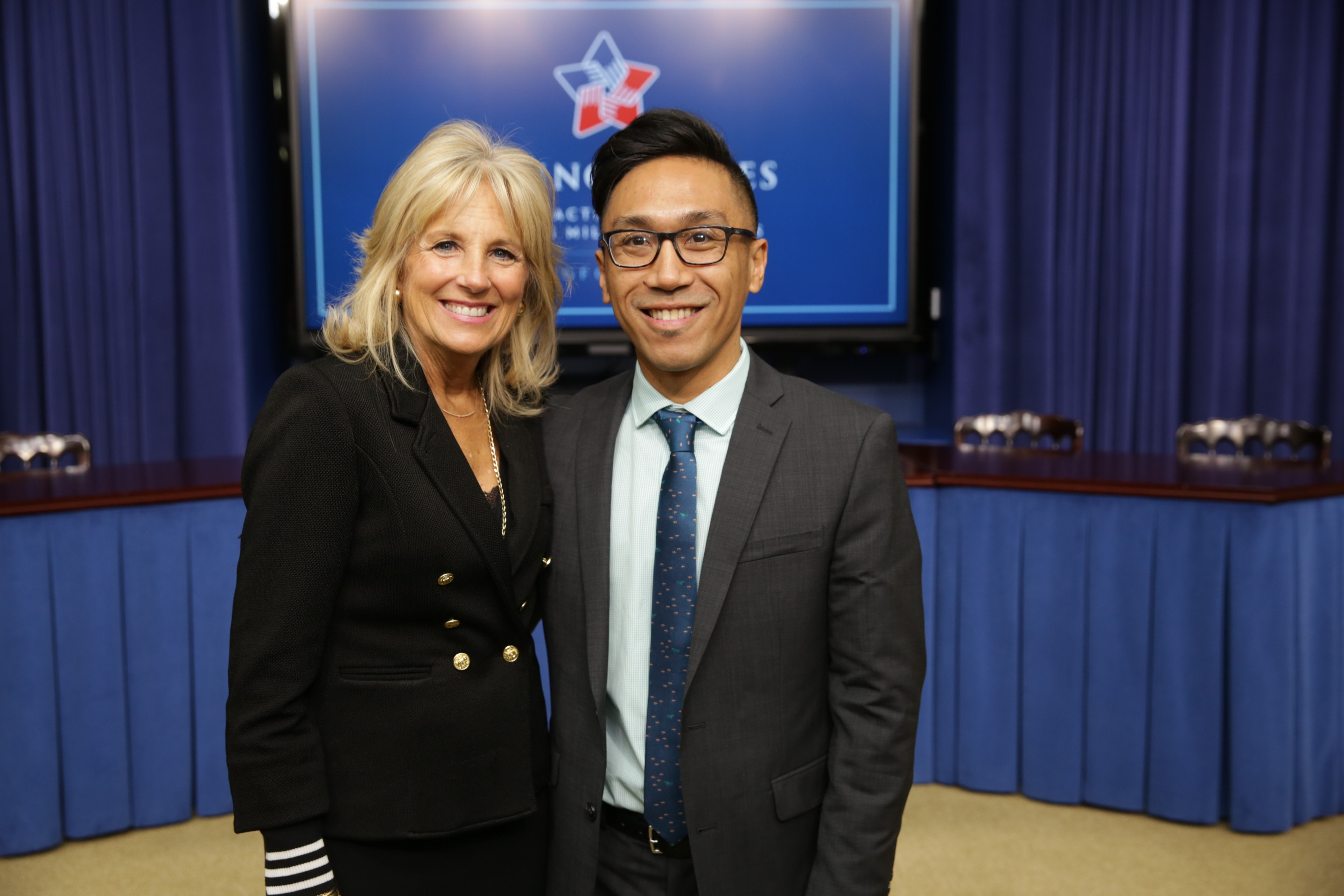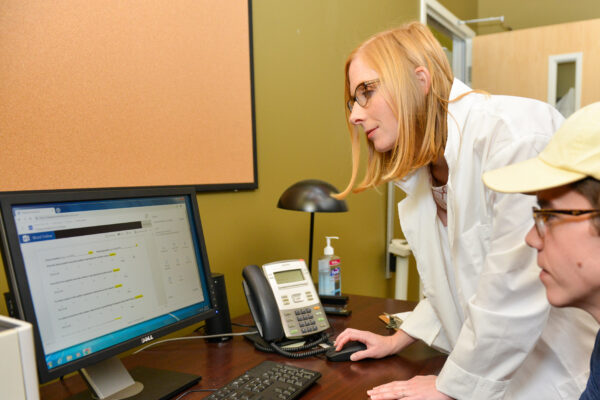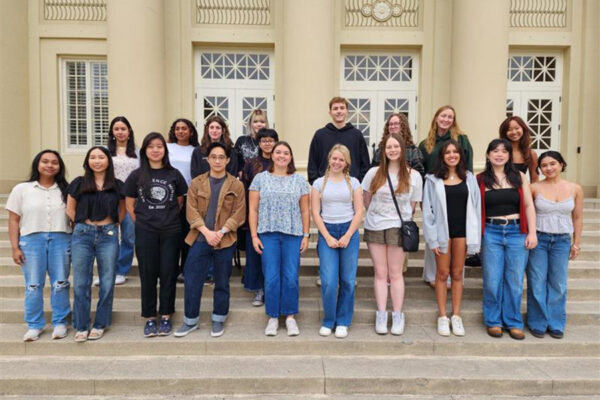Sometimes seemingly small things can make a big difference in the school lives of children of military families, says Kris De Pedro, Ph.D., assistant professor in the College of Educational Studies. Think friendship gardens and regular guest speakers from the local military base.
Those were just a couple of the myriad topics De Pedro brought to the conversation as a participant in the Operation Educate the Educators conference, an event organized by the White House’s Joining Forces initiative launched in 2011 by First Lady Michelle Obama and Dr. Jill Biden.
De Pedro was chosen to present at the conference based on his extensive research into school success and military children. Based on much of that research in 2012 De Pedro and colleagues published the four-part book set Supporting Children of Military Families, a series of guides for students, teachers, administrators and parents.
At the conference De Pedro led a roundtable discussion titled “Best Practices in the field for post-secondary success.” Too often military children have gaps in their college-prep work because of the transient nature of the military lifestyle, or have been distracted by the stresses of parents’ deployments or parents returning with their own traumas.
Educators are improving policy and programs that address those challenges, he says. Meanwhile many schools are jumping in with smaller ways to solve the problem.
“I’ve done a lot of research on what I call home-grown practices. We try to uncover what’s working right now in difference schools,” he said.
Some effective programs include friendship gardens where transient military families can quickly join in as a way of connecting with the school. Others provided their teachers with a roster of little-known but local resources that families can turn to for help. Some schools routinely invited service people to campus as guest speakers as a way to demystify military culture for the non-military students.
But De Pedro’s research also shows that schools often don’t share these ideas.
“A lot of times schools are silos and they don’t have the resources to do this,” he said.
That’s where university researchers backed with grant funding can step in and help, he said. Policy and funding to help ease the challenges military-affiliated school children face will support that effort, along with the high-profile backing of Obama and Biden.
“It’s getting better,” he said.
Display image at top/Dr. Jill Biden with Kris De Pedro, Ph.D., assistant professor, at Operation Educate the Educators. (Official White House photo by Chuck Kennedy)





I love that Chapman is a part of this initiative. As a military brat, there are little things that can make such a difference to helping brats acclimate more quickly and smoothly. I’m not sure it is possible because of security issues, but having some way for incoming families to see if there is anyone on base who has lived in the area from which they are moving would be a great way to help kids connect right away. We typically moved over the summers and finding friends those first few weeks without being in school can be difficult. With such a list, families could reach out to each other with the common thread of not only being military, but having familiarity with past assignments. While the first day of school was always exciting because you never knew what old friends you might run into, connecting before school would help the transition so much.